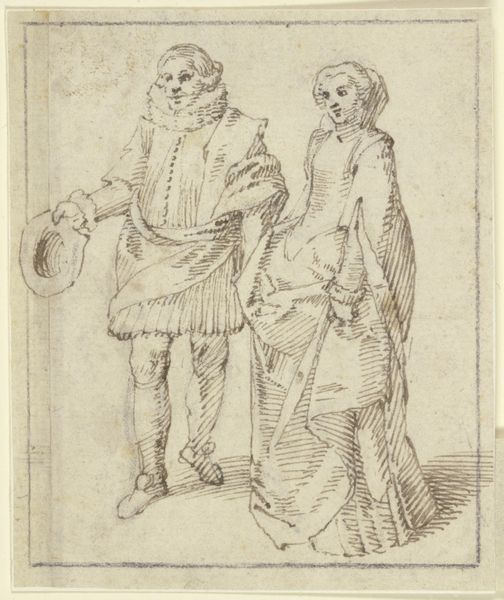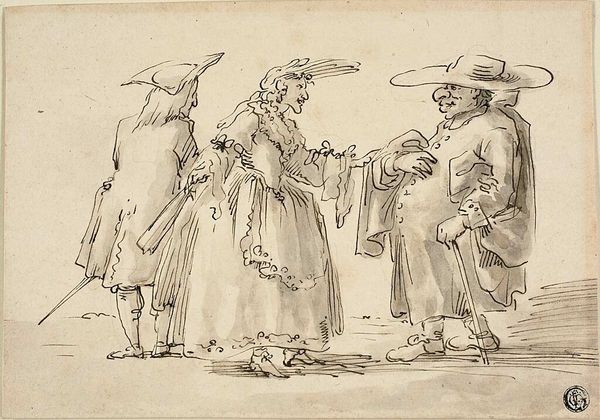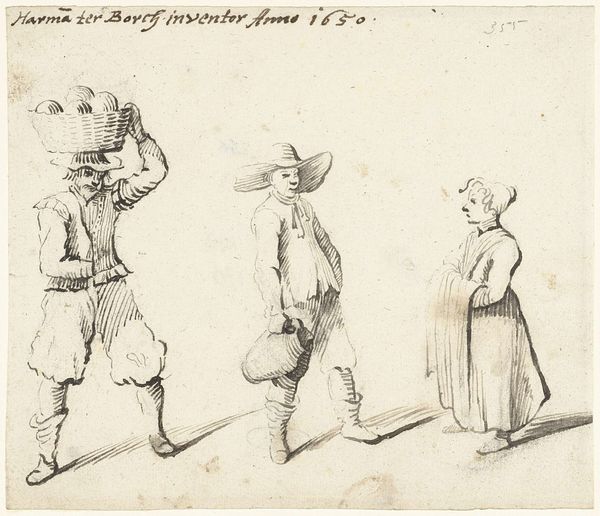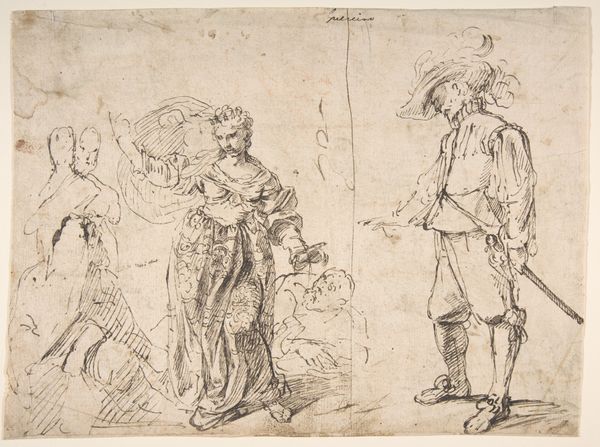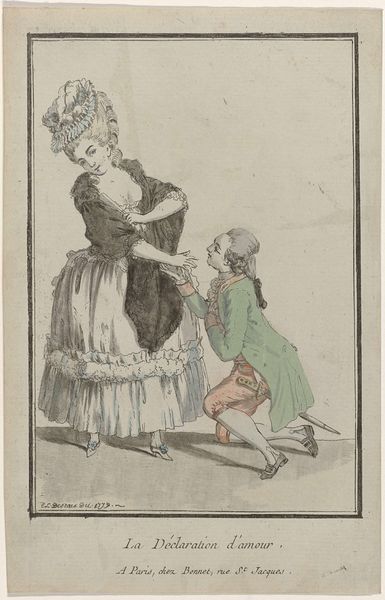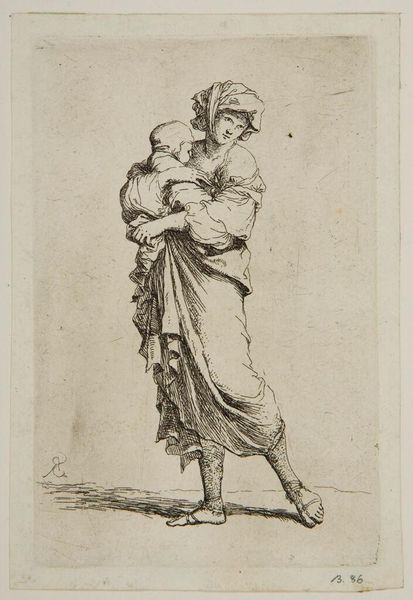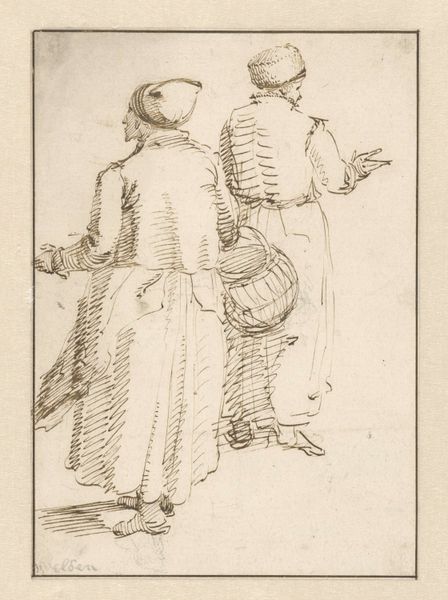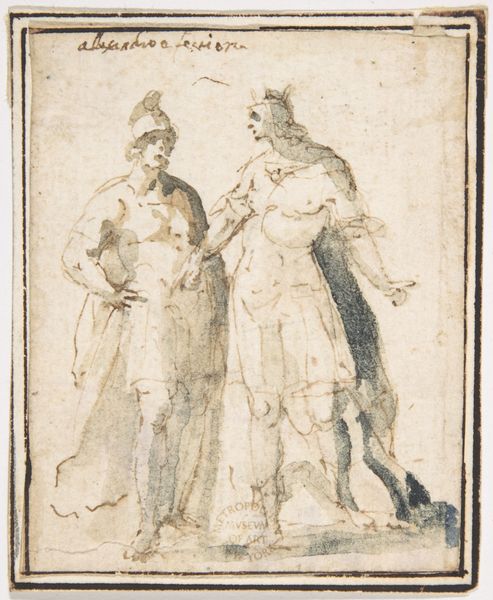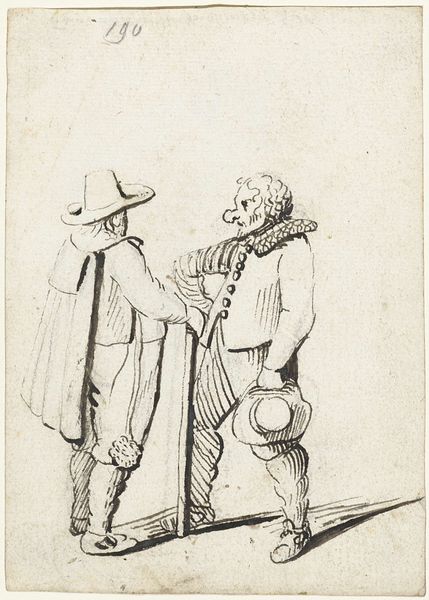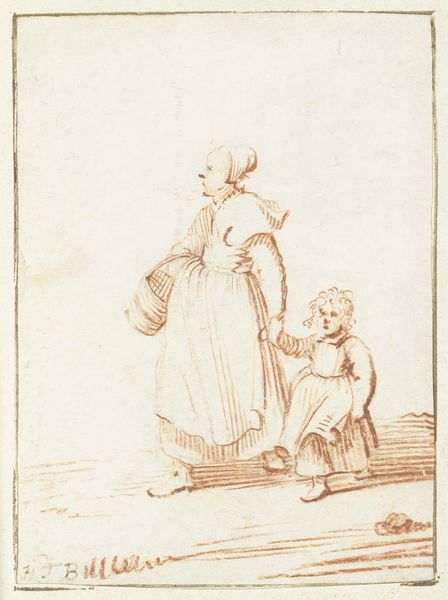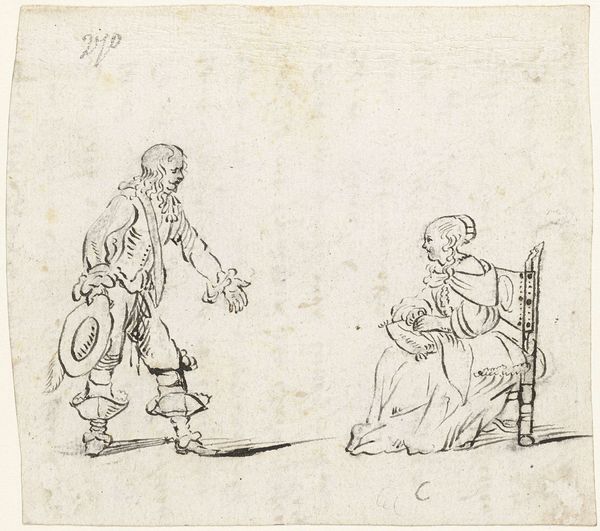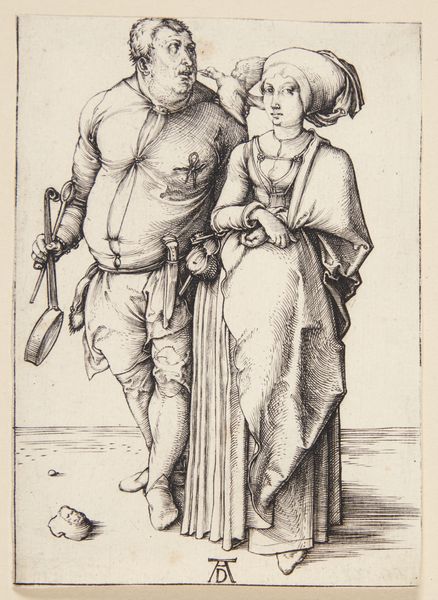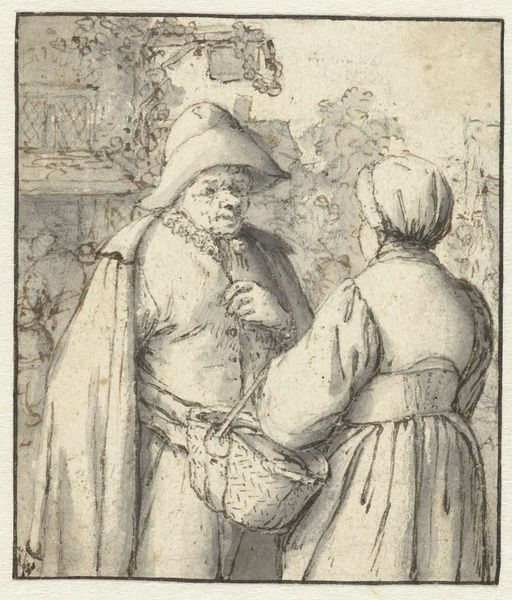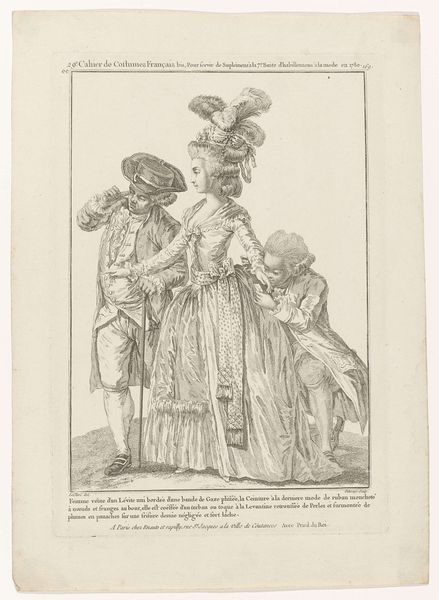
Copyright: CC-BY-NC-ND 4.0 DEED, Photo: Tate
Curator: Here we have an intriguing sketch by Joseph Highmore, born in 1692, titled "A Man, a Woman and a Dog in a Landscape." Editor: My first impression is the sparseness—the way Highmore uses minimal lines to suggest form, leaving so much open to interpretation. The ink seems to dance across the page. Curator: It's interesting to consider this work in light of Highmore’s career as a portraitist for the rising merchant class. Perhaps this is a study for a larger, more formal piece, reflecting societal values regarding family and landscape. Editor: Perhaps, but the immediacy of the line suggests a different kind of value. Look at the dog, for instance. It’s just a few scribbles, but it absolutely conveys "dog-ness," its essence. It strikes me as an exercise in pure visual communication. Curator: I see your point. But it also speaks to the burgeoning interest in naturalism in the 18th century, and how artists were figuring out ways to represent the world around them. Editor: Regardless, the dynamism of Highmore's hand and the bareness of the scene create a palpable emotionality. Curator: Indeed. And it offers us a glimpse into a moment in time, filtered through the lens of social expectation and artistic exploration. Editor: Leaving us both with something to ponder.
